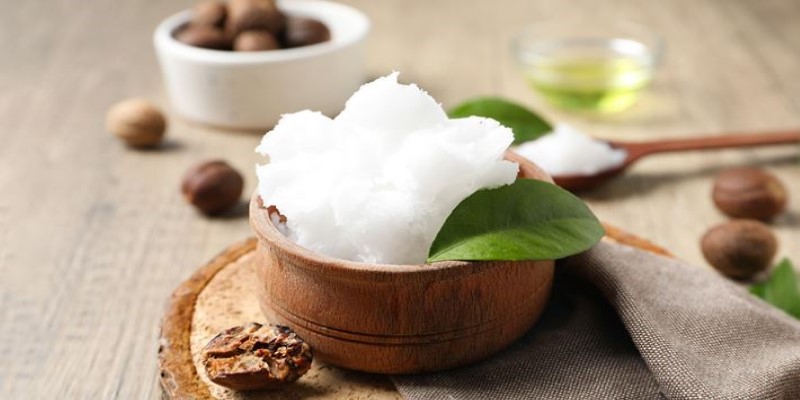In recent years, there has been a growing shift towards natural skincare, as more people are becoming aware of what goes on their skin. Natural skincare emphasizes using products that contain ingredients derived from nature, such as plants, minerals, and other naturally sourced substances. The appeal lies in the simplicity and transparency of these ingredients, which are often free from harmful chemicals like parabens, sulfates, and synthetic fragrances.
But what exactly does natural skincare entail, and how can you incorporate it into your daily routine? This guide will walk you through the basics of natural skincare, highlighting its benefits, the types of products to consider, and how to build a simple yet effective routine that works for your skin type.
Natural skincare refers to the use of products made from ingredients found in nature rather than synthetic or chemically altered substances. The main goal is to nourish and protect the skin using gentle, non-toxic components that are less likely to irritate or harm the skin barrier. This approach often involves using plant-based oils, extracts, essential oils, and other natural elements that are known for their healing and nurturing properties.
When diving into natural skincare, knowing which ingredients to look for can make a big difference in your routine. These ingredients are not only effective but also gentle on the skin, helping to enhance its health and appearance without harsh chemicals. Here are some key natural ingredients to consider:
Aloe vera is renowned for its soothing and hydrating properties. This natural ingredient is often used to calm irritated or sunburned skin, making it ideal for sensitive skin types. Its high water content helps to keep the skin hydrated, while its anti-inflammatory properties can reduce redness and swelling.

Shea butter is a rich source of vitamins A and E, which are essential for maintaining skin health. It provides deep moisturization and helps to improve skin elasticity, making it a great choice for dry or aging skin. Shea butter also has anti-inflammatory properties, which can soothe irritated skin.
Coconut oil is a versatile ingredient known for its moisturizing and antibacterial qualities. It is particularly beneficial for dry skin and can help to lock in moisture. Its antibacterial properties also make it useful for managing acne-prone skin. However, those with oily or sensitive skin should use it with caution, as it can be comedogenic for some individuals.
Packed with antioxidants, green tea extract helps to protect the skin from environmental damage caused by free radicals. It also has anti-inflammatory properties, which can help reduce redness and swelling. Incorporating green tea extract into your skincare routine can aid in maintaining a youthful and healthy complexion.
Jojoba oil closely resembles the skins natural sebum, making it a great option for balancing oil production. It provides lightweight moisture and can help to regulate the skins oil levels without clogging pores. Jojoba oil is suitable for all skin types, including oily and combination skin.
Rosehip oil is rich in essential fatty acids and vitamins A and C. It improves skin texture and tone while promoting healing and reducing the appearance of scars and fine lines. Its regenerative properties make it a popular choice for addressing signs of aging and uneven skin tone.
Witch hazel is a natural astringent that helps to tighten and tone the skin. It is commonly used to reduce the appearance of pores and control oil production. Its anti-inflammatory properties also make it effective in soothing irritation and redness.
Chamomile extract is known for its calming and anti-inflammatory effects. It is beneficial for sensitive skin and can help to soothe irritation and redness. Chamomile also has antioxidant properties that contribute to overall skin health.
One of the primary benefits of natural skincare is its potential to reduce exposure to harmful chemicals. Many conventional skincare products contain synthetic additives, preservatives, and fragrances that can cause skin irritation, allergic reactions, or even long-term health issues. Natural skincare products, on the other hand, typically have a shorter list of ingredients, which makes it easier to understand what you're putting on your skin.
Another advantage is that natural skincare often supports overall skin health. Ingredients like aloe vera, shea butter, coconut oil, and green tea extract provide hydration, antioxidants, and anti-inflammatory benefits that help to soothe and protect the skin. Additionally, natural skincare tends to be more eco-friendly, as it usually involves sustainable sourcing and minimal packaging, which reduces its environmental impact.
Creating a natural skincare routine doesnt have to be complicated. The key is to keep it simple and consistent. Heres a basic framework to get you started:
Cleansing: Start with a gentle cleanser that doesnt strip the skin of its natural oils. Look for cleansers with natural ingredients like chamomile or rosewater, which are known for their calming effects.
Exfoliating: Exfoliation is crucial for removing dead skin cells and keeping the skin smooth. Opt for natural exfoliants like ground oatmeal or sugar that gently polish the skin without irritating it.
Toning: A natural toner can help balance the skins pH and tighten pores. Witch hazel or rosewater make excellent natural toners that are gentle on the skin.

Moisturizing: Even if you have oily skin, moisturizing is a must. Natural oils like argan or jojoba can provide hydration without clogging pores. For those with dry skin, heavier oils like avocado or shea butter can be more effective.
Sun Protection: Protecting your skin from the sun is vital in any skincare routine. Look for natural sunscreens that contain zinc oxide or titanium dioxide, which provide broad-spectrum protection without the harsh chemicals found in conventional sunscreens.
Enfolding natural skincare is about more than just switching products; it's a commitment to understanding and caring for your skin more holistically. By choosing products with simple, natural ingredients, you can reduce your exposure to harmful chemicals, support your skin's health, and contribute to a more sustainable lifestyle. Remember, the key to a successful natural skincare routine is consistency, patience, and a willingness to listen to your skin's needs.
By Alison Perry/Sep 18, 2024

By Maurice Oliver/Sep 19, 2024
By Celia Shatzman/Sep 19, 2024

By Elva Flynn/Sep 22, 2024

By Darnell Malan/Sep 16, 2024

By Sid Leonard/Sep 06, 2024
By Isabella Moss/Sep 19, 2024

By Susan Kelly/Sep 05, 2024

By Elva Flynn/Sep 06, 2024

By Juliana Daniel/Sep 23, 2024

By Kelly Walker/Jul 13, 2024

By Aldrich Acheson/Aug 25, 2024